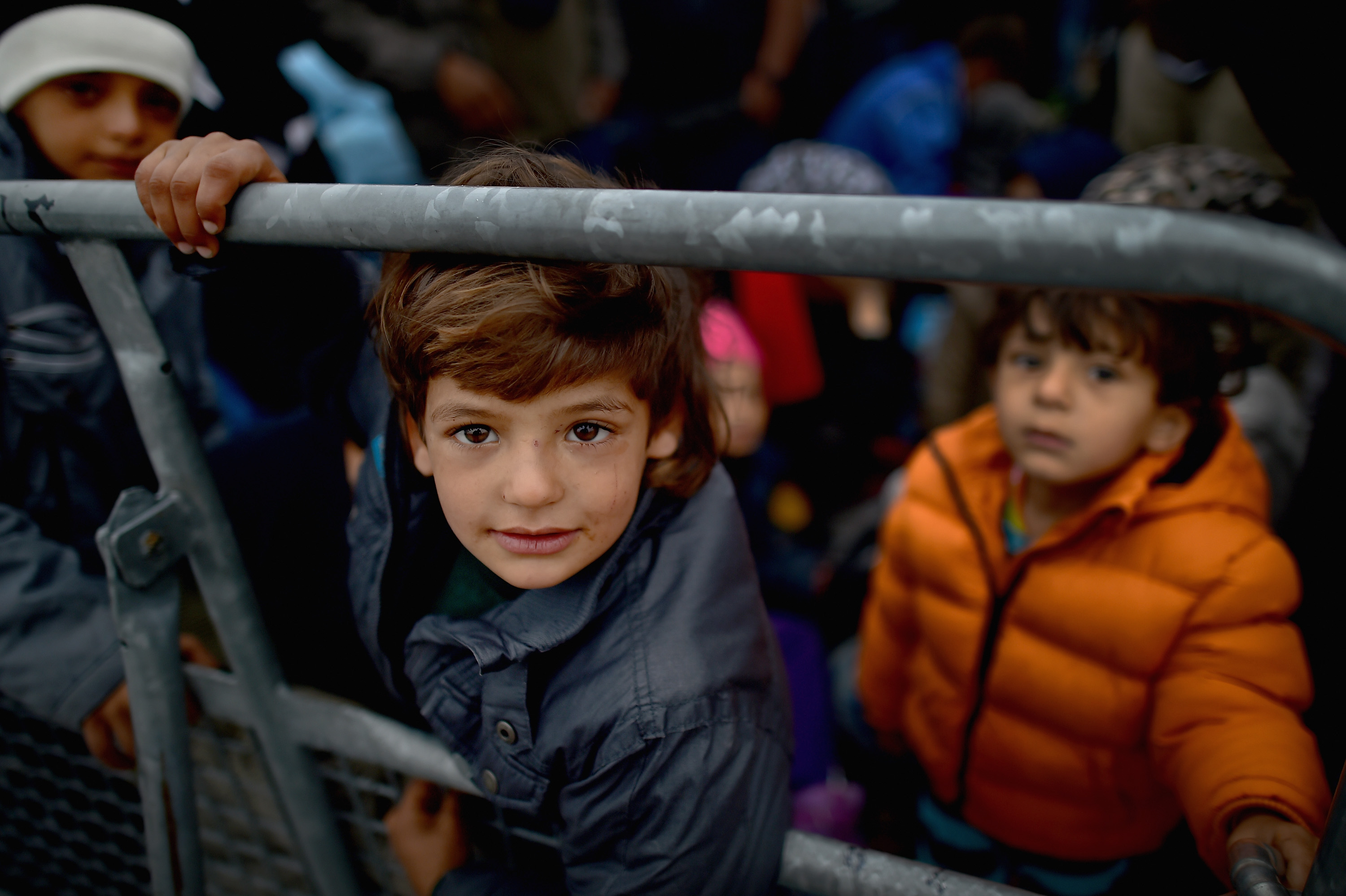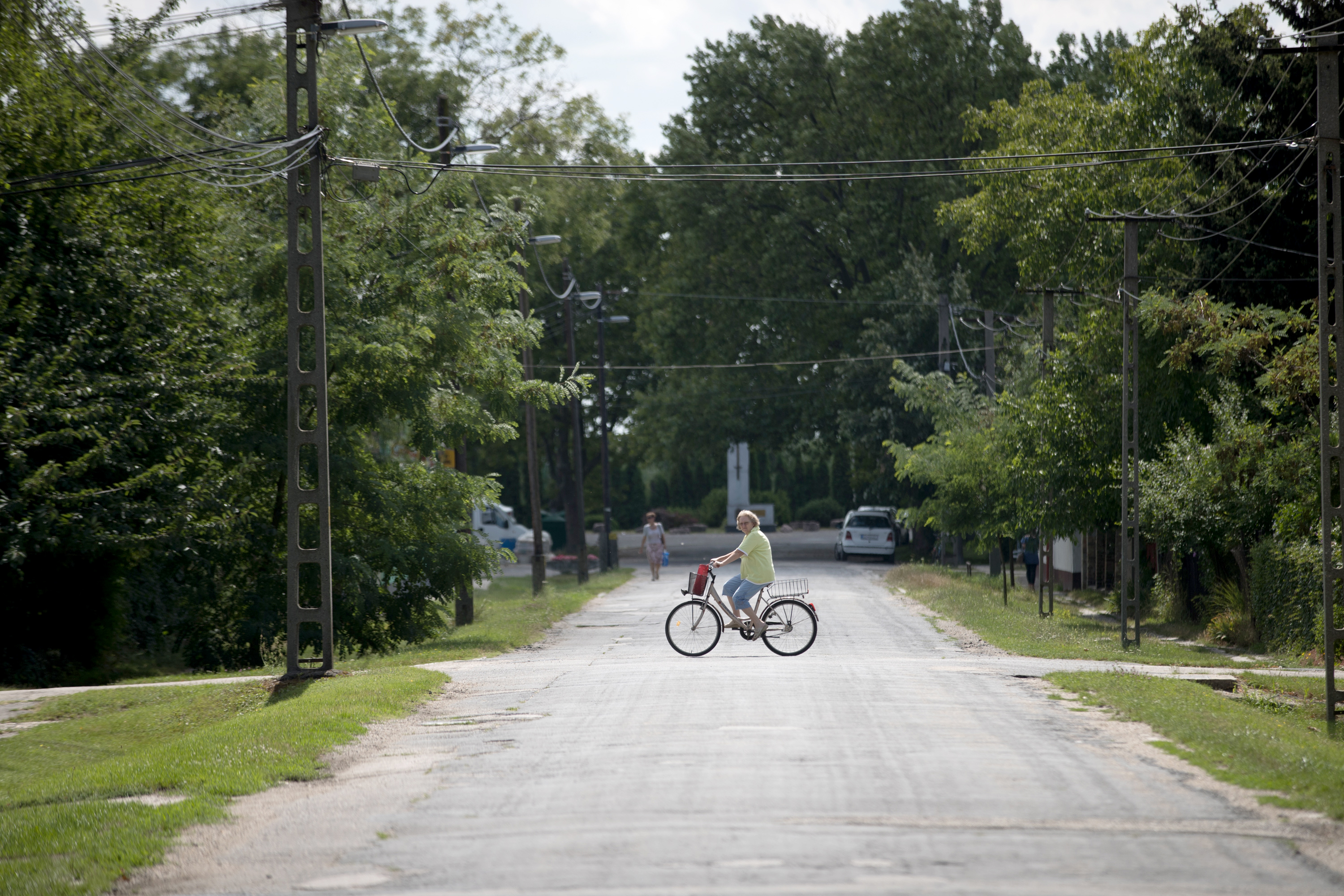In Hegyeshalom, one of the last Hungarian villages before the Austrian border, clothes cover the ground. They rest in piles on the side of the road and hang off shrubs and trees. There are abandoned baby carriages, fully packed duffel bags, and pieces of plastic litter strewn about all the way to the horizon.
It is September of 2015, and, every half hour or so, hundreds of refugees and migrants march from the village train station toward Austria. The first time my traveling companion and I pull our car alongside them with supplies, we are mobbed. “Water, water, water!” they shout, fighting to reach into the back seat. Within a minute and a half, the car is emptied of everything we’ve brought, and the column—order restored—moves on. A small girl, maybe six, asks me if there’s more water. I give her a stuffed rabbit, which seemed less absurd when I decided to buy it.
When we return to the site with more water, we find other volunteers by the side of the road. Anna, a pink-cheeked 15-year-old Austrian, cries as she describes how, at certain points, the police have not allowed them to provide assistance. To deal with her anger, she tells me, she wrote a poem about how “they are not letting us be human, because it is human to help people.”
We unload our water, and Anna and the other volunteers explain the rules. The police will not interfere, Anna says, as long as the people do not stop moving. We stagger the piles of water bottles to prevent bottlenecks and hand them off without making anyone break stride. Half-liter bottles are best: People are too tired, their hands too full, to carry anything bigger. Even the small bottles we hand them are abandoned 50 yards down the road, still half-full. Children’s shoes are also frequently discarded, so parents may hoist their youngsters without the extra weight.
An old woman sits down in the dirt, gestures to her feet, and begins to cry. I ask the police if they will drive her to the border. They will not, but they won’t prevent us from doing it.

(Photo: Jeff J. Mitchell /Getty Images)
I pat my chest and pretend to hold a steering wheel, trying to communicate a sense of safety and assurance, which is ridiculous given the circumstances of our meeting. Another woman makes a motion with her thumb—I think she’s asking if they’ll be processed at the border. I have no idea. Like many of the volunteers, I’m wearing a fluorescent vest that is meant to signify authority but really signifies nothing. I got it from under the seat of the rental car we’re sleeping in. We take the old woman and her family to the border one carload at a time.
We do our best to drive all those who are too young, old, injured, or despondent to keep walking. While we see every conceivable demographic, the most common is young, male, and middle class—the most able to afford the smuggler’s fees. They tell us how their parents or grandparents chose to stay behind in Syria, Iraq, or Afghanistan, or how they were kidnapped and mugged by their smugglers, or how they have lost, or lost track of, friends and family along the way. We see an injured man being carried by four others, and another man traveling with his cat. Some have been trying to reach Europe for weeks; others have been at it for a year.
“Just two kilometers,” I tell a man, as I hand him his water bottle. “And what is there?” he asks warily. Austria, I say. He is ecstatic.
People do not know where they are, or even what country they’re in. An endless series of buses or trains dumps them in strange places, and when they get off and resume walking, they’re not told where or how far they have to go.

(Photo: Matt Cardy/Getty Images)
After hours of people trickling past us 20 or 30 at a time, a larger police presence materializes around nightfall. The largest column we’ve seen marches toward us, and we realize what it is: the last trainload before authorities close Hungary’s southern border. We linger there purposelessly for a few minutes in the dark.
When we finally get in the car, Hegyeshalom is silent. The only people left are the ones who live there, quietly preparing for bed inside their homes.





